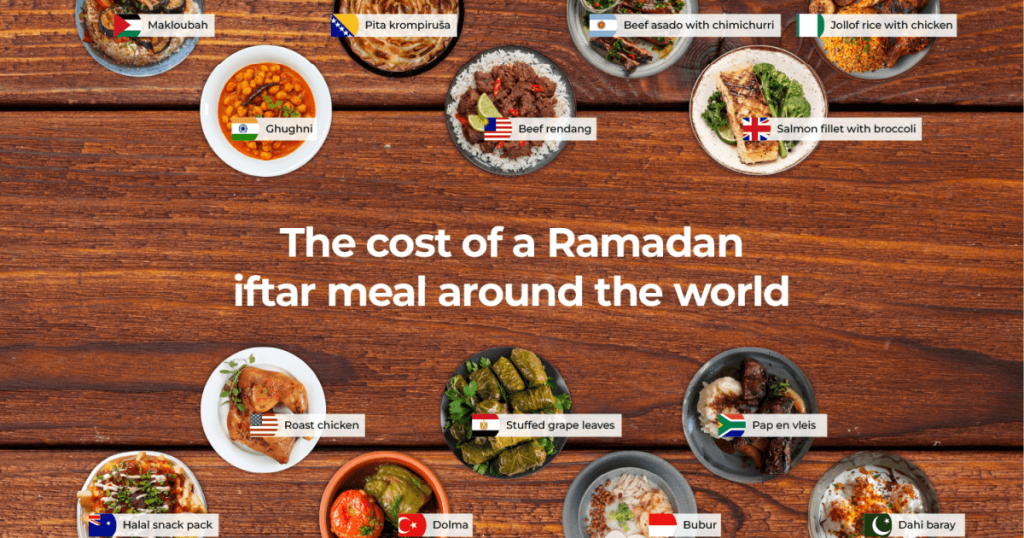During the Islamic holy month of Ramadan, Muslims worldwide gather to break their fast with dates and water followed by a meal known as iftar. With rising food prices, many households have had to consider cutting back on favorite Ramadan dishes. Al Jazeera compared the prices of ingredients from 14 countries to see the cost increase over the past year. In Argentina, a traditional meal featuring beef asado has seen a four-fold increase in cost due to high inflation levels. Australia’s multicultural landscape is reflected in its halal snack pack, which has increased in price due to inflation affecting key ingredients like meat and eggs.
In Bosnia and Herzegovina, traditional foods like pita krompiruša have become more expensive due to higher prices of potatoes, sugar, and butter. Egypt’s grape leaves stuffed with rice and meat have also seen a significant price increase this Ramadan. India’s ghugni dish has decreased in cost due to a drop in onion prices, while Indonesia’s bubur meal has seen a slight increase in price. Malaysia’s beef rendang dish has become more expensive mainly due to higher prices of fresh food items like eggs and coconut milk.
In Nigeria, jollof rice is now more expensive due to inflation affecting poultry and other fresh food items. Pakistan’s dahi baray is now pricier due to higher costs of vegetables, sugar, and ghee. Palestine’s maklouba dish has seen a price increase, mainly due to higher prices of olive oil and meat. South Africa’s pap en vleis dish has increased in price due to rising inflation impacting items like cake flour and sugar. Turkey’s dolma meal has also seen a price increase, especially in dairy products like milk and yogurt.
In the United Kingdom, a seafood iftar meal has seen a marginal price increase due to inflation peaking at around 4 percent. The United States has also experienced a 5 percent increase in the cost of iftar meals, with ingredients like poultry and dairy becoming slightly more expensive. Despite these challenges, Muslims around the world continue to observe Ramadan and celebrate with traditional meals that are important to their cultural and religious identity. Inflation and rising food prices have impacted the affordability of these meals, but many families are finding ways to adapt and continue these cherished traditions.















